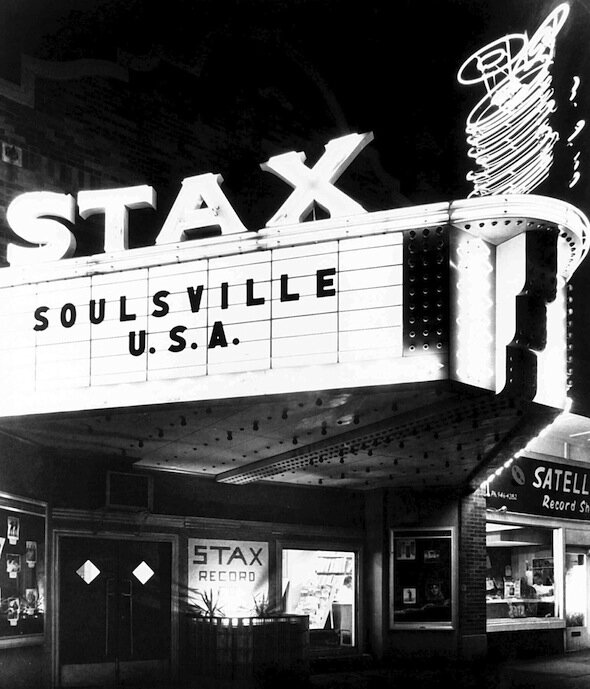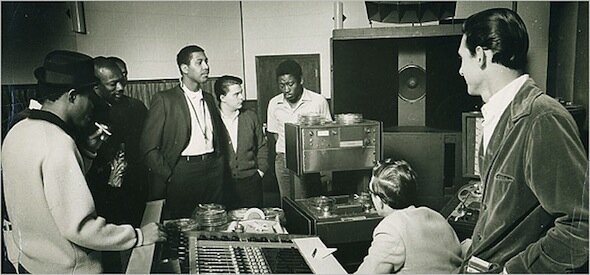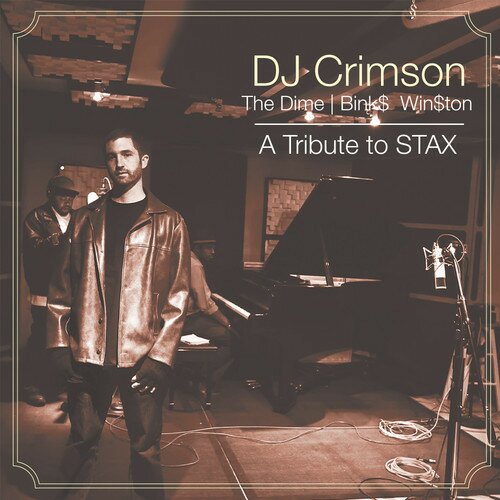 When I was an undergrad at UCLA, I took a general ed class on the history of Motown and Soul, cuz that had to be hella fun, right!? Learning about the music I grew up on sure beat Stats and Phy Sci 5 anyway. Studying Motown was fascinating because they were a black-owned label dominating mainstream radio in the 1960s and 70s, but it was assembly-line formulaic pop music. Even the main exception to that rule, Marvin Gaye’s What’s Going On?, only happened because Marvin recorded the single unbeknownst to Berry Gordy. A small pressing of the single was released by the label without Gordy’s approval, and only morphed into an album after a pissed Gordy bore witness to the song’s commercial success. In fact, Marvin was given a mere ten days to record the iconic album before he left to film the TV movie, Chrome & Hot Leather. Meaningful art was produced, but it was a hard fought anomaly.
When I was an undergrad at UCLA, I took a general ed class on the history of Motown and Soul, cuz that had to be hella fun, right!? Learning about the music I grew up on sure beat Stats and Phy Sci 5 anyway. Studying Motown was fascinating because they were a black-owned label dominating mainstream radio in the 1960s and 70s, but it was assembly-line formulaic pop music. Even the main exception to that rule, Marvin Gaye’s What’s Going On?, only happened because Marvin recorded the single unbeknownst to Berry Gordy. A small pressing of the single was released by the label without Gordy’s approval, and only morphed into an album after a pissed Gordy bore witness to the song’s commercial success. In fact, Marvin was given a mere ten days to record the iconic album before he left to film the TV movie, Chrome & Hot Leather. Meaningful art was produced, but it was a hard fought anomaly.
Motown’s typical middle of the road, ‘appease white people’ approach to music was a boon for record sales, but lacked soul. Interestingly, white-owned Memphis label Stax Records was on the cutting age of soulful and funky multi-ethnic collaboration in the early 1960s. Stax’s roots were in the groove, with many of their early records being strictly instrumental (“Green Onions”), or even novelty dance songs (Hip-Hop didn’t invent that ish). Then, thanks in large part to a young Otis Redding, the label tapped into a raw soul sound that would become their signature and put Memphis on the map. Gordy had his “Hitsville, USA”, but in a clear retort, Stax dubbed it’s headquarters, “Soulsville, USA.”
Stax gave rise to stars like Booker T and The MGs, Otis Redding, Sam & Dave, and Isaac Hayes, but also featured lesser known acts like The Mar-Keys, David Porter, and The Tonettes. The label saw some success, but ended up insolvent after a poor distribution deal with CBS Records. Their post 1968 catalog has changed hands a few times, but has been owned by Bay Area labels Fantasy Records and Concord Music Group since 1977. In fact you can see a few gold Otis Redding records in Berkeley’s Fantasy Studios to this day.
The pre-1968 catalog has seen less distribution over the years, but the Bay’s DJ Crimson decided to reintroduce this early catalog to a new generation after coming up on a friend’s collection of all of Stax singles on vinyl. He felt it was his duty to put folks on game, but the project evolved as he worked in popular hip-hop samples, and then had his homies The Dime and Bink$ Win$ton spitting over some classic Stax riffs and offering running commentary throughout the mix. It’s the type of organic looseness that one pictures being the norm in the Stax studio back in the 60s. Take a listen to some classic material with a modern Bay twist.




